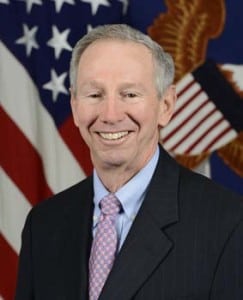The Defense Department is shelving its work on neutral particle beams as it advances other directed energy weapons, the Department of Defense’s top research official said on Wednesday.
Given limited funding, DoD is focusing on nearer term applications of various directed energy weapons that puts lasers and microwaves first, Undersecretary of Defense for Research and Engineering Mike Griffin said during the annual Defense News Conference today.

“We’re deferring work on neutral particle beams for indefinitely, it’s just not near enough term,” Griffin said.
Since the department does not have enough money for everything it might want to do, they are focusing on getting lasers to a higher power. “We’re focusing on nearer term applications of directed energy, particularly lasers of higher power than we currently have. We’re in the tens of kilowatts realm and we need to be in at least the hundreds of kilowatts realm and we are prioritizing that,” Griffin continued.
He argued, having been involved in directed energy for over three decades, “my own opinion is we need to get systems built and out onto weapons platforms so that we can see what they do, how they do it. We need better to understand the lethality of such systems.”
Griffin said DoD needs to work on better understanding beam control and scaling them up in practical ways.
For example, “if you have 250 kilowatts of laser power and you’re operating at best 50% efficiency, you have to figure out what to do with the other 250 kilowatts of heat. So there are a lot of practical problems with real world weapons systems.”
The move from particle beams shows a shift in Griffin’s thinking over the past year and a half in how to allocate directed energy resources.
In 2018, Griffin said he would be “very welcoming” of approaches that did not have as much focus in recent years or decades, like neutral particle beams and high power microwaves (Defense Daily, March 21, 2018).